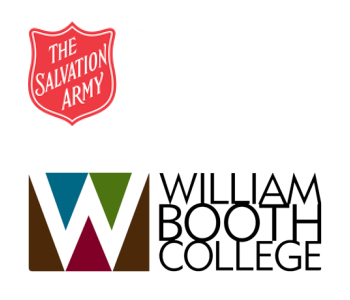DISCIPLESHIP
PERSONAL AND SPIRITUAL FORMATION
Authentic Discipleship
Living in obedience to Jesus’ calling, embodying God-honouring priorities, and maintaining a life of worship and prayer, spiritual formation, and receiving ministry from others. Healthy relationships and lifestyle
Emerging:
I’m learning to explore and practice personal discipline including spiritual disciplines in my relationship with Jesus and others. I contribute to and receive ministry within my faith community.
Competent:
I balance my life, including family, health, and work, on the foundation of spiritual formation, embracing individual and communal practices. I receive grace through friendships with neighbours, people in the community, and colleagues. I interpret my calling in new appointments and opportunities and am proactive in my church/corps membership.
Releasing:
I foster trust and explore faith deeply with others, creating safe spaces for my vulnerability and honesty. My life and actions reflect my relationship with God. I model balance rather than project overwork. I support and mentor, signposting resources that offer good teaching/guidance.
Transforming:
I champion engagement in the transformation process, humbly receiving grace, living reflectively, inspiring others. I evidence a maturing, authentic discipleship, ensuring mutual accountability for our mission priority of ‘nurture disciples of Jesus’.
Personal impact and self-awareness
Understanding the impact on others of our use of power and influence
Emerging:
I act to live out Salvation Army values and behaviours. I recognise how power and influence can be misused and I seek to notice this within myself.
Competent:
As a disciple I create regular opportunities for self-reflection to notice and address areas within myself that need refining. I am aware of the risk of manipulating others and imposing myself or my personal views because of my position.
Releasing:
I model emotionally healthy spirituality and emotional intelligence in my influencing, demonstrating confidence and humility. I address where power is misused by others. I share power with people rather than over people.
Transforming:
I lead by taking responsibility for decisions and actions in my context to ensure they are ethical and can be explained. I use power in a mutually transforming way.
Lifelong learning
Through welcoming developmental feedback, Accompanied Development, using reflective practice to contribute to personal growth
Emerging:
I engage in personal development, enhanced through discussion, using feedback to learn and adapt my behaviour.
Competent:
I reflect on and apply feedback to my performance. I identify my learning needs and commit to continuous development. I proactively engage with accredited pastoral/professional supervision, or spiritual direction, or coaching/mentoring, knowing the importance of accountability for my leadership practice.
Releasing:
I model lifelong learning and inspire this in others. I learn from feedback, adapting my practice to support my maturing in leadership.
Transforming:
I drive a learning culture within my context ensuring development opportunities are accessible, also using qualitative and quantitative data and insights.
Managing self
Developing personal wellbeing and resilience, adapting within existing and evolving situations
Emerging:
I am learning to manage my workload along with life’s pressures, starting to apply boundaries.
Competent:
I manage evolving workloads and resolve associated pressure. I create appropriate boundaries, knowing when to say no and when to choose sacrificial service. I create space for those things which feed, fill, and energise me.
Releasing:
I engender resilience through reflecting on and evaluating experiences, enhancing wellbeing, supporting others to manage effectively, avoiding damaging drivenness.
Transforming:
I establish a culture of self-awareness, adaptability, and healthy expectations, mitigating impacts of adversity, building capacity for resilience.

